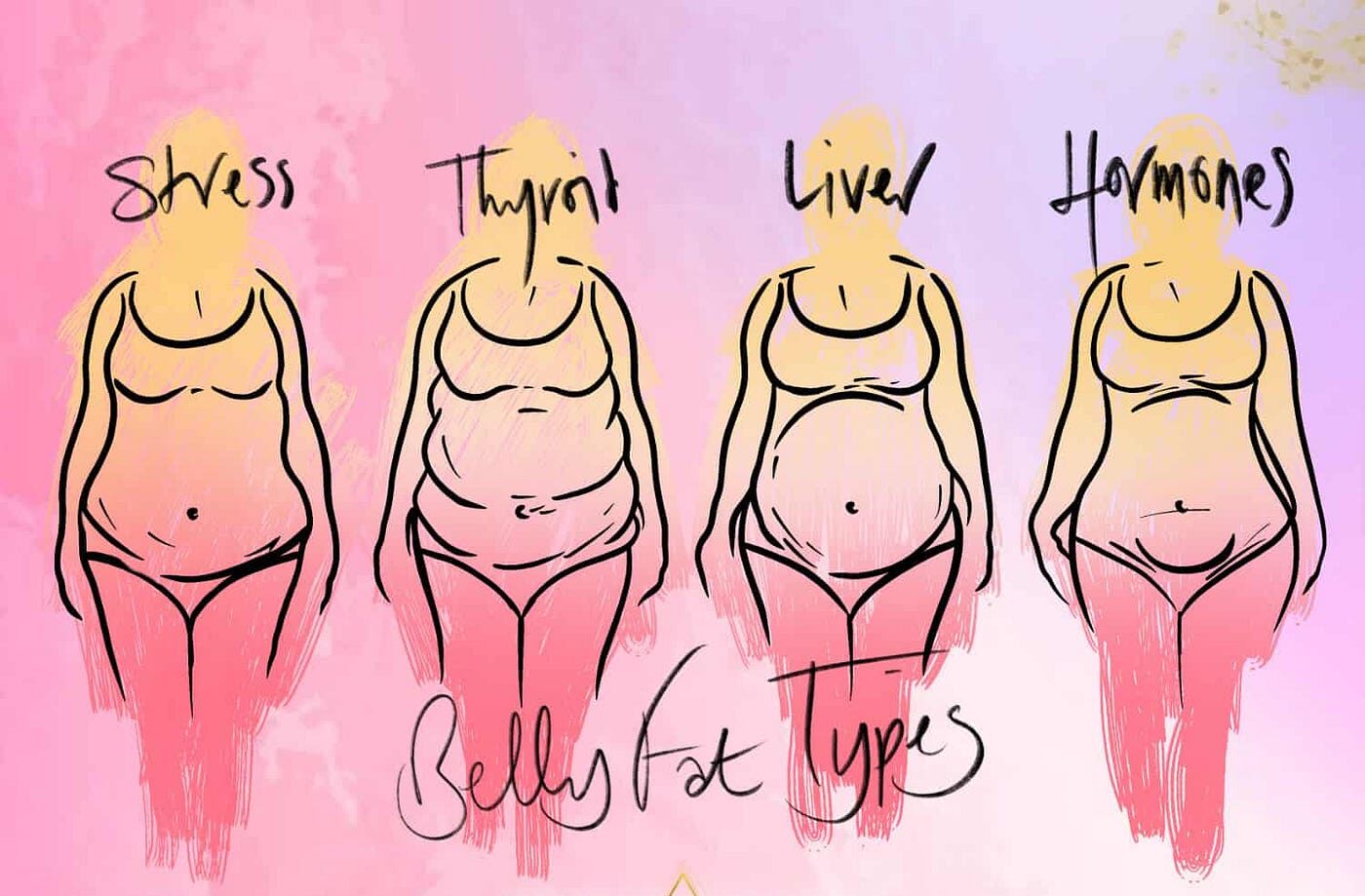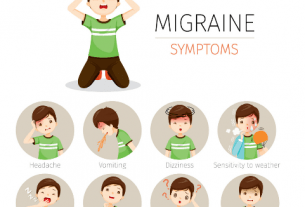Most women witness fat deposits in their stomachs as they age and also talk about what causes belly fat in females . Naturally, your metabolism burns less as you age, and you cannot burn as many calories as you did when you were younger. Another problem menopause can cause is insulin resistance, leading to an abundance of fat in the stomach; therefore, the usual diet and exercise are rendered useless.
Page Contents
What causes belly fat in females
Two main types of fat can cause a big stomach.
Fat in the stomach: Nature’s harmony results from being the home of all living things; the environment forms the organs where the recital plays.
Subcutaneous fatty tissue: the course of the fluid’s way beneath the skin.
In contrast to aging, which is a natural part of life, some of us are born with weight problems, while others experience them as a result of stressful lives or poor eating habits. This article will address seven of the most common reasons why belly fat is so interesting.
What’s behind belly fat?
How much a person weighs depends, in large part, on four things: How much a person weighs depends, in large part, on four things:
According to these surveys, most people who wish to lose weight are interested in the number of calories in the food they consume daily.
- We take in or expend more calories in a day.
- Age.
- Genetics.
People who consume a routinely more significant number of calories than their bodies burn each day are likely to gain extra weight, with the abdomen being the apparent area for additional weight.
As time goes by, it will become increasingly expressed. Muscle loss is one of the most severe elements of ageing. Lastly, people who don’t have active lifestyles are the worst affected. A decrease in muscle tissue affects the speed at which the body becomes energized. It may not be easy to keep a position as such, making this more challenging.
Many women who have been observed will know belly fat can accumulate even if they don’t gain weight as they grow older. The probable cause is estrogen depletion, as estrogen seems to impact where the body’s fat is kept.
Genes may also determine the fat rate and the chance of being overweight or obese. They likewise affect individual fat storage.
7 Causes of belly fat in women
-
Calories consumed
So, if you eat more energy than you use, you will likely gain weight. The old saying, “Women gain weight in their hips first,” is often true during pregnancy.
-
Unhealthy diet
Taking more fat and sugar and drinking more alcoholic beverages consequently allows you to burn less fat and obtain more abdominal fat, which is called fat accumulating stomach fat deposits.
-
Genetics
Women who inherit this trait of weight gain, mainly in the belly area, should consider genes. Brief genetic variability can be implicated with the caloric intake and fat storage hormones’ reception genetics. Two gene variants associated with a larger waist-to-hip ratio and more belly fat discovered in women are female-specific.
-
Active lifestyle
Many health professionals say standing still or motionless for hours accumulates abdominal fat. Engaging in a suitable amount of regular physical activity and limiting the time you sit for too long can prevent fat storage around your stomach.
-
Menopause
Many women experience body mass gain after menopause. During puberty, estrogen molecules send the body a signal to start adding fat to the hips and thighs to prepare for pregnancy. On the other hand, estrogen drops as you enter menopause. The fat is stored not in the hips and thighs, where it usually does, but around the abdomen.
-
Symmetry of bacteria on gut microflora
The shift took place as the natural composition of the bacteria in the gut was disrupted. This affected how the host was able to metabolize the nutrients and resulted in inflammation and hormonal imbalances. If you eat a lot of fiber and not a lot of refined carbs, you will find that you have a healthy gut and will lose weight in your midsection.
-
Pregnancy and postpartum
In the third trimester of your pregnancy, you are eating for two and will put on weight around the stomach, arms, and thighs, and that’s natural. After the delivery, the weight-loss process gets you stuck, and the muscle loss is difficult to replace. If your baby was delivered via C-section, you are at a high risk of developing weak abdominal muscles that make looking toned and fit a bit difficult.
How do you get rid of female belly fat?
How do you remove what is called female belly fat?
Sitting for the whole day is not just about looking awkward. It is also linked to the severity of health problems. However, with a few lifestyle changes, you can shed the excess weight around your midsection:
- Consuming more whole grains, fruits, and nuts—foods that are not animal products is incredibly beneficial.
- Select lean protein and low-fat dairy products that are healthy for you. A meal plan with low carbs might involve understanding the best alternatives to foods.
- Understand and study the food labels on food packaging closely.
- Avoid processed foods
- Switch to water or fruit juices instead of sugary beverages.
- Exercise for at least two and a half hours with moderate or vigorous motion each week.
- Let 7 hours of sleep be yours overall.
Why do I always have a fatty stomach?
Suppose you have too much fat only in the stomach. In that case, that results from an eating disorder or a condition in which fat distribution is complex enough to kick out around the waist. Common reasons you may be gaining weight in your stomach include:
- Poor diet: When you eat a diet that is high in value but low in protein, it is easy to put weight on your middle section. Eating junk food adversely impacts the metabolism rate and the body’s overall health.
- Sedentary lifestyle: extensive periods seated, beaming the battle with the fat abdomen and buttocks creeping up.
- Stress: People who are stressed might have an excessive amount of cortisol in their bodies. This will, in turn, influence their metabolism and make them grab for more unhealthy food more often.
- Sleep: Recent studies have shown that not getting enough sleep has been associated with inflammation. The changes in hunger hormones, and lack of exercise, all of which may add weight to one’s body.
- Alcohol: At excessive levels of drinking, the body can show this by accumulating fat around the lower abdominal area, as well as chronic liver problems and inflammation
.
.
.
.



